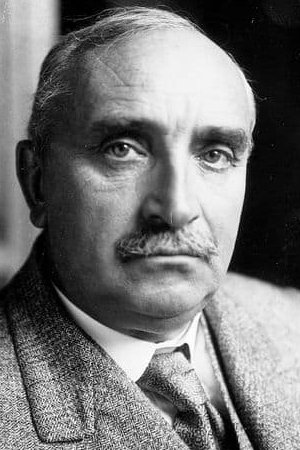Paul Claudel (1868-1955)
Birthplace:
Villeneuve-sur-Fère, Aisne, France
Born:
August 6, 1868
Died:
February 23, 1955
Paul Claudel (6 August 1868 – 23 February 1955) was a French poet, dramatist and diplomat, and the younger brother of the sculptor Camille Claudel. He was most famous for his verse dramas, which often convey his devout Catholicism. He was born in Villeneuve-sur-Fère (Aisne), into a family of farmers and government officials. His father, Louis-Prosper, dealt in mortgages and bank transactions. His mother, the former Louise Cerveaux, came from a Champagne family of Catholic farmers and priests. Having spent his first years in Champagne, he studied at the lycée of Bar-le-Duc and at the Lycée Louis-le-Grand in 1881, when his parents moved to Paris. An unbeliever in his teenage years, Claudel experienced a conversion at age 18 on Christmas Day 1886 while listening to a choir sing Vespers in the cathedral of Notre Dame de Paris: "In an instant, my heart was touched, and I believed." He remained an active Catholic for the rest of his life. In addition, he discovered Arthur Rimbaud's book of poetry Illuminations. He worked towards "the revelation through poetry, both lyrical and dramatic, of the grand design of creation". Claudel studied at the Paris Institute of Political Studies. The young Claudel considered entering a monastery, but instead had a career in the French diplomatic service, in which he served from 1893 to 1936. Claudel was first vice-consul in New York (April 1893), and later in Boston (December 1893). He was French consul in China during the period 1895 to 1909, with time in Shanghai (June 1895). On a break in 1900, he spent time at Ligugé Abbey, but his proposed entry to the Benedictine Order was postponed. Claudel returned to China as vice-consul in Fuzhou (October 1900). He had a further break in France in 1905–6, when he married. He was one of a group of writers enjoying the support and patronage of Philippe Berthelot of the Foreign Ministry, who became a close friend; others were Jean Giraudoux, Paul Morand and Saint-John Perse. Because of his position in the Diplomatic Service, at the beginning of his career Claudel published either anonymously or under a pseudonym, "since permission to publish was needed from the Ministry of Foreign Affairs". For that reason, Claudel remained rather obscure as an author to 1909, unwilling to ask permission to publish under his own name because the permission might not be granted. In that year, the founding group of the Nouvelle Revue Française (NRF), and in particular his friend André Gide, were keen to recognise his work. Claudel sent them, for the first issue, the poem Hymne du Sacre-Sacrement, to fulsome praise from Gide, and it was published under his name. He had not sought permission to publish, and there was a furore in which he was criticised. Attacks based on his religious views were in February also affecting the production of one of his plays. Berthelot's advice was to ignore the critics. The affair began a long collaboration of the NRF with Claudel. Claudel also wrote extensively about China, with a definitive version of his Connaissance de l'Est published in 1914 by Georges Crès and Victor Segalen. In his final posting to China, he was consul in Tianjin (1906–1909). ... Source: Article "Paul Claudel" from Wikipedia in English, licensed under CC-BY-SA 3.0.
